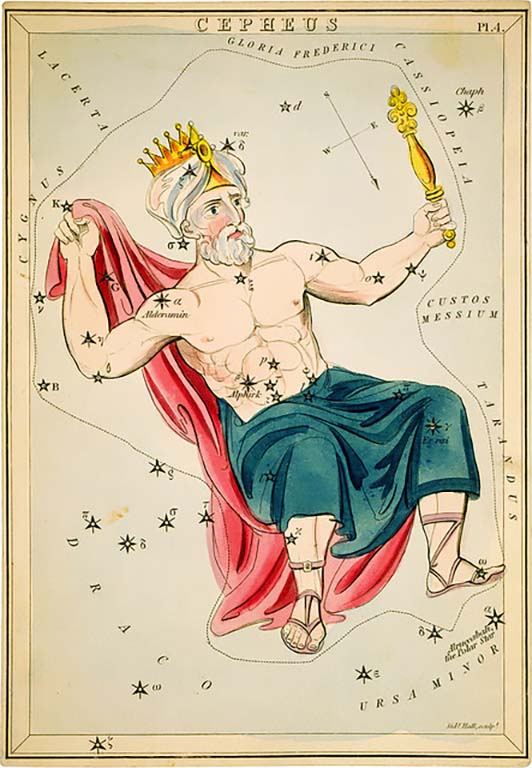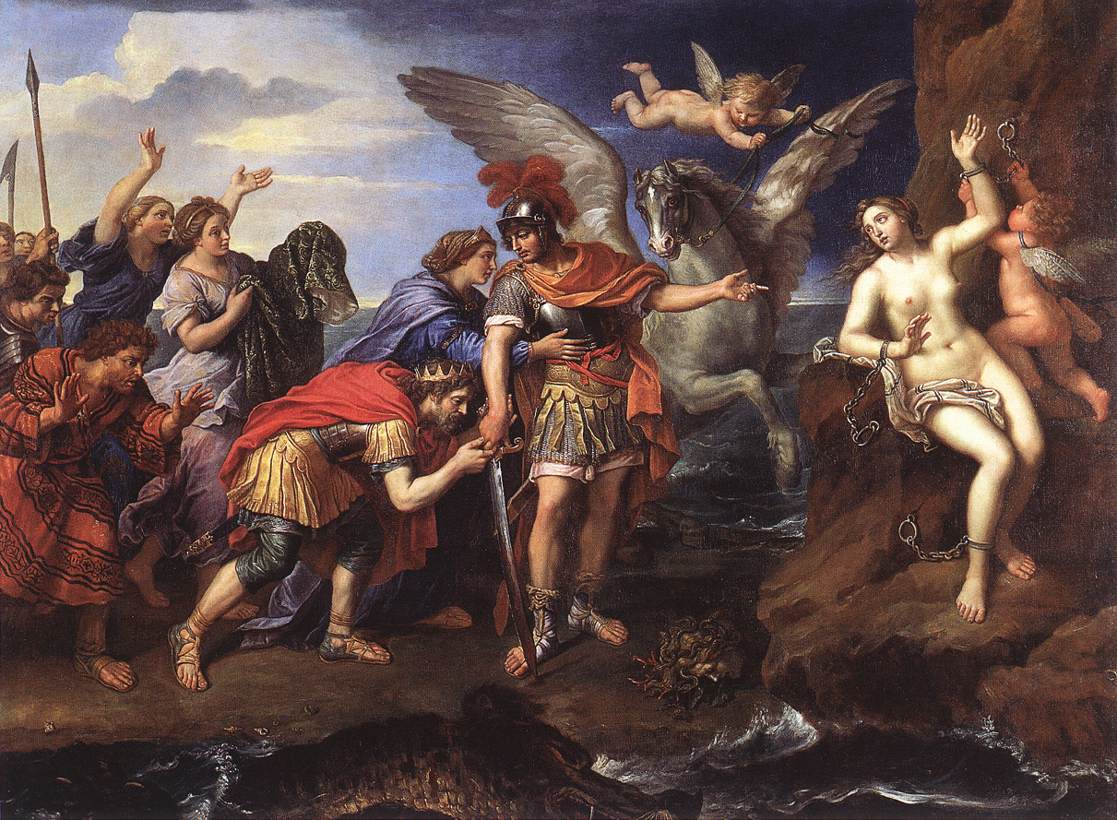Cepheus
Cepheus (Ancient Greek: Κηφεύς) was the name given to a King of Aethiopia in Greek mythology. Cepheus was the husband of Cassiopeia, father of Andromeda, later, the father-in-law of Perseus.
Cepheus is prominently featured in the Perseus legend as the husband of Cassiopeia and father of Princess Andromeda, and whose brother Phineus expected to marry Andromeda. Various sources described his kingdom to be "Aethiopia" or the city of Joppa (Jaffa) in Phoenicia whom was named after the elder Cepheus' wife, Iope, daughter of Aeolus.
When Cepheus' proud wife Cassiopeia foolishly boasted that Andromeda was more beautiful than the Nereids, not only the sea-nymphs themselves but also Poseidon was angered. Thus, the sea god sent a flood and a sea monster Cetus to attack the Aethiopian land.
Cepheus and Cassiopeia then consulted a wise oracle of Ammon (identified with Zeus), at the oasis of Siwa in the Libyan desert, who declared that the calamity would not be brought to an end until their daughter Andromeda was offered up to the monster. The king chained the princess to a rock by the shore at the insistence of his people to be devoured by Cetus.
Andromeda was saved from this fate when Perseus, flying home with his trophy (i.e. head of Medusa), had passed by the kingdom of Cepheus and noticed that a girl of wonderful beauty was chained to a rock by the seashore. Perseus fell in love with her at first sight and undertook to slay the monster if she would promise to marry him; or, in a slightly different version, he approached her father Cepheus and won an equivalent promise from him.
The hero then proceeded to kill the monster with his sword or sickle (or else turned it to stone by showing it the Gorgon’s head). Perseus washed off his blood in the spring near the city of Joppa which later became red water, because of his blood.
Cepheus and Cassiopeia allowed Perseus to become Andromeda's husband after he used Medusa's head to turn Phineus and his men to stone for plotting against him.
According to Hyginus, the betrothed of Andromeda was named Agenor. After spending a year or so at the court of his father-in-law, Perseus finally set off for Seriphos with his wife. Since Cepheus had no heir of his own, the departing couple allowed him to adopt their first-born child, Perses, who was destined to give his name to the Persians; and it was from Perses that the name of Persia came about, and all Persian kings, as they were descended from Perses, was thus descendants of Cepheus, King of Aethiopia, as well.
Cepheus was later made into the constellation Cepheus. As a constellation, Cepheus is a constellation in the northern sky, named after Cepheus, a king of Aethiopia in Greek mythology.
Cepheus was one of the 48 constellations listed by the second century astronomer Ptolemy, and it remains one of the 88 constellations in the modern times.

Sources
Herodotus. Histories, 7.61
Pseudo-Apollodorus. Bibliotheca, 2.1.3
Hyginus. Astronomica, 2.9.1
Aratus, Phaenomena 189. Translated by Mair, A. W. & G. R. Loeb Classical Library Volume 129. London: William Heinemann, 1921.
Stephanus of Byzantium s.v. Iope: Ἰόπη
Pausanias, Description of Greece 4.35.9 with an English Translation by W.H.S. Jones, Litt.D., and H.A. Ormerod, M.A., in 4 Volumes. Cambridge, Massachusetts, Harvard University Press; London, William Heinemann Ltd. 1918.
Ovid, Metamorphoses 5. 1 - 238
Hyginus. Fabulae 64.
"Wikipedia"













